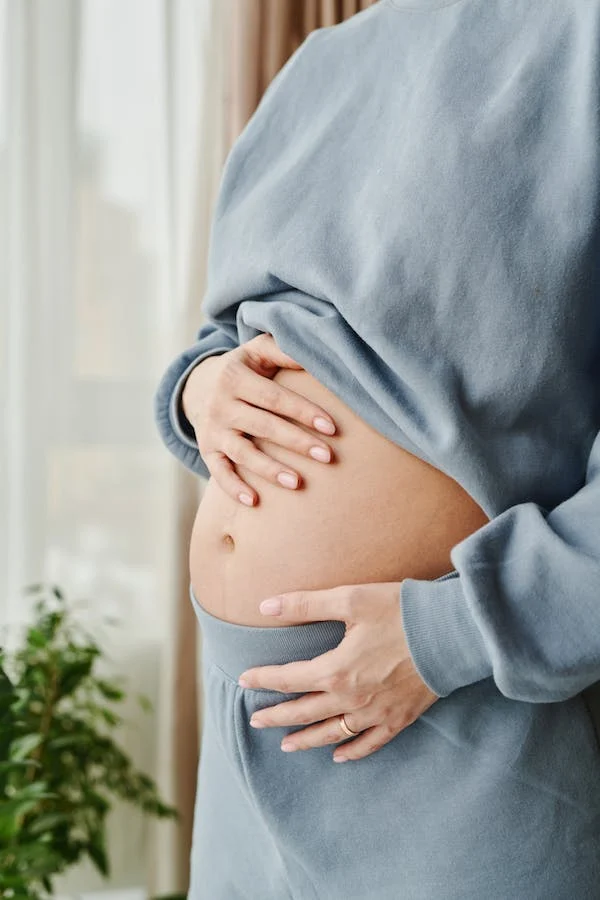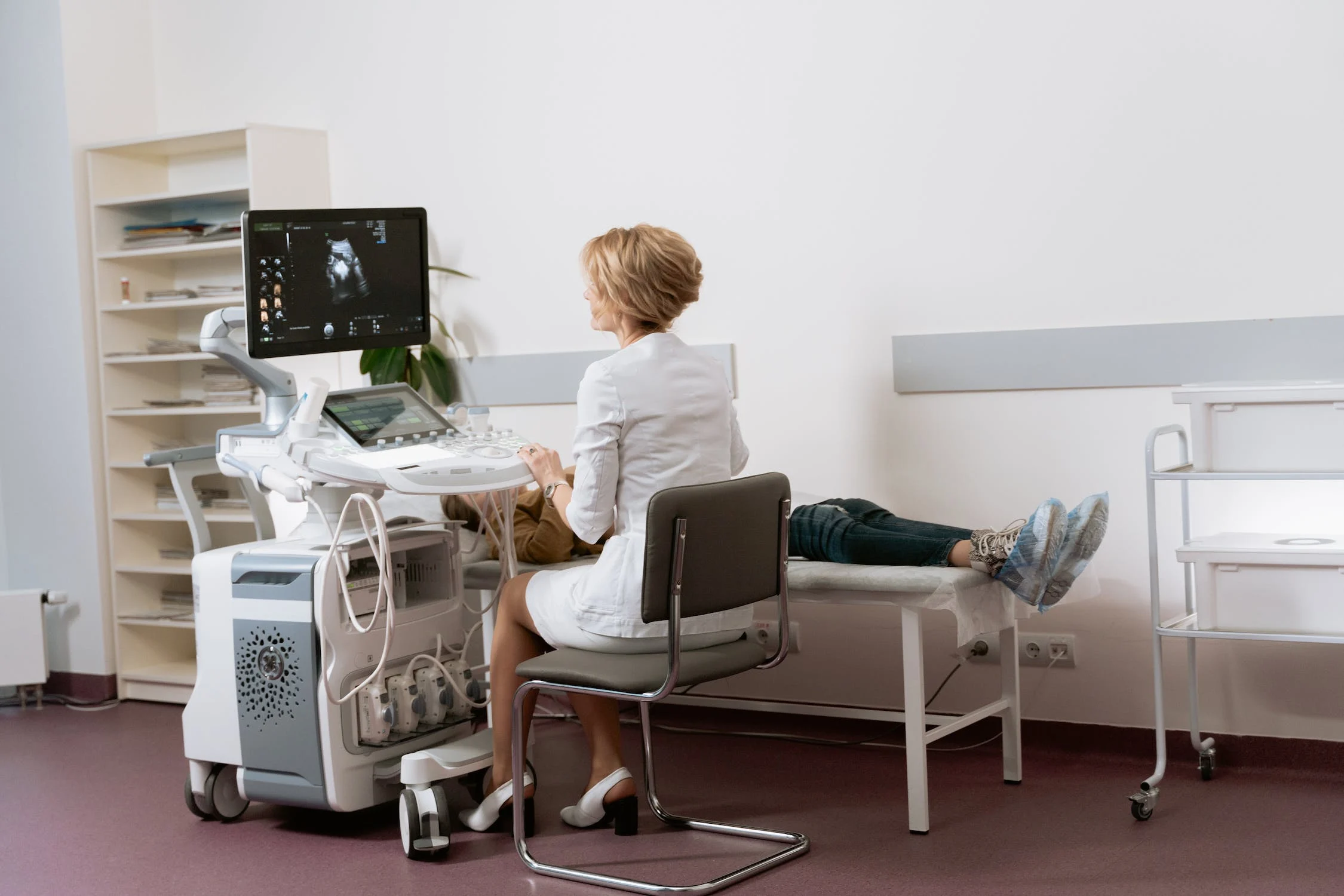Pregnancy can be an exciting and stressful rollercoaster ride now that you’re almost two months pregnant. While you’re not yet sporting that baby bump, it’s normal to feel overwhelmed by the many physical changes starting to happen in your body. You and your baby at 8 weeks are experiencing so many physical changes at once.
To help you in your pregnancy journey, we listed down below everything you need to know about what’s happening with you and your baby when you’re 8 weeks pregnant!
Confirming Your Pregnancy at 8 Weeks

Source: Pexels
The first trimester is a rollercoaster of emotions and physical changes. Most women start to feel pregnant as they may have missed their menstrual period at this time or have started experiencing common symptoms such as fatigue, headaches, or morning sickness. You may also start feeling tight when wearing your usual clothes most likely because your uterus expands during this period.
Many women may not experience the same early pregnancy symptoms. For example, it is normal that you’re not showing a pregnant belly at eight weeks pregnant. However, if you are showing a bit, that’s normal, too! If you suspect you are pregnant, it is always recommended to confirm your pregnancy.
Using an at-home pregnancy test or visiting your healthcare provider for a blood or urine test can confirm whether or not you’re pregnant. You should pursue a prenatal visit once it is confirmed that you are pregnant. An appointment with an obstetrician will able to give more detailed information about your pregnancy and the changes you can expect for the next few weeks.
Morning Sickness and other Pregnancy Symptoms at Week 8
Your body at 8 weeks pregnant is experiencing many changes at once. To provide nutrients to your growing baby inside your belly, you may experience a variety of mild to severe symptoms. Some symptoms may include:
- Morning sickness
- Mild cramping, similar to period cramps
- Bloating
- Headaches
- Heightened sense of smell and/or taste
- Feeling more emotional
- Constipation
These symptoms listed above are just some of the common pregnancy indicators. Keep in mind that pregnant women experience various symptoms at once or none at all. After all, pregnancy is a unique experience for everyone. For example, a lack of nausea or vomiting during the eighth pregnancy week isn’t a cause for worry.
Pregnancy Hormones at Week 8
Many incredible things are happening inside your body during pregnancy. Nausea during the first trimester is usually an effect of pregnancy hormones present in your body. Hormones produced in the placenta and increased estrogen and progesterone are associated with pregnancy-related nausea and vomiting.
The increase in progesterone also causes fatigue during the first trimester. Additionally, the increase in blood volume results in a faster breathing rate and pulse, contributing to the tiredness most women experience around this period. You may also experience emotional swings from the surges in your hormone levels.

Source: Pexels
The rise of hormone levels in your body may indicate that your body is producing the hormones needed for a healthy pregnancy. It is possible that nausea and vomiting are indicators of viable placental tissue.
Keep in mind that pregnancy is a unique experience in every case. If you have more concerns about the changes in your body caused by hormones, we recommended you ask your healthcare provider during your prenatal visits.
8 Weeks Pregnant: Your Baby’s Development
At eight weeks, your baby’s webbed fingers have started to form. The embryonic tail is getting smaller and eventually will disappear. Their upper lip and the nose have also formed on their face while their eyes have started to develop pigment. Their neck and trunk begin to straighten while their lower limb buds will take the shape of paddles. While the baby’s genitals start to form, it is too early to tell whether your baby is a boy or a girl at this stage.

Source: Pexels
All the major organs and systems are formed at the end of eight weeks. On top of that, the little embryo is now referred to as a fetus, meaning offspring in Latin. By the end of the eighth week, your baby’s size is around 1 inch – about the size of a raspberry!
Tips for You This Pregnancy Week
As a mother, you want what’s best for your baby. This means taking care of yourself – both physically and mentally – throughout your pregnancy. However, this huge responsibility shouldn’t mean you’re putting pressure on yourself to be perfect. There is no one right way to experience pregnancy – every trimester is unique to every mother. Here are just a few tips for you to help you through this pregnancy week.
Stay hydrated and eat healthy snacks
During pregnancy, it’s important to eat a healthy diet – fruits and leafy vegetables, whole grains, lean protein, and healthy fats. Some of your pregnancy symptoms can be aided by healthy lifestyle choices, including what you eat during this week. At eight weeks pregnant, you may feel a lot more tired than usual, which is why eating small meals throughout the day can help you keep your energy up. Snacks that are rich in calcium and iron such as cereal, cheese, and yogurt can help strengthen bones and prevent iron deficiency anemia.
Food that is high in protein and easy to digest can help with morning sickness. In addition to a healthy diet, it’s important to drink enough water as it aids digestion and helps nutrients circulate in the body. Finally, consult your healthcare provider for the right pre-natal supplement which will help fill in the gaps in your diet.
Get to know your pregnancy calendar and prepare your baby registry

Source: Pexels
A pregnancy calendar is a week-by-week guide that has all the details on you and your baby’s changing bodies. It has all the information about each trimester and what you can expect when you’re a few weeks to months pregnant, leading up to your delivery date. It also contains important medical information that will help keep you and your baby healthy. There are also pregnancy calendars that also function as a journal so that you can keep them as a memento of your pregnancy journey.
While you’re still in your early pregnancy, there’s enough time to update your baby registry. You can take note of the items you’d like to receive as gifts such as things you’ll need in the nursery and the items you’ll use during your pregnancy up to your baby’s arrival. These items can range from a first-trimester gift box, a booster car seat for your newborn, or a pregnancy pillow to help support your back when sleeping. Your baby registry should reflect what you need. It also helps you keep track of the things you already have so that your well-wishers won’t buy the same thing.
Week 8: Questions for your Healthcare Provider

Source: Pexels
Your first prenatal appointment is just around the corner when you’re eight weeks pregnant. It’s important to feel comfortable with your chosen healthcare provider because they will be part of your support system. Visiting the doctor’s office is going to be routine for you in the next few months.
During your first prenatal visit, your doctor may ask questions about your personal medical history, when you had your last menstrual period, and the medications you already take. It’s important to share this information with your doctor so that they have the full picture to help you and your baby throughout your pregnancy.
They will also offer a variety of prenatal genetic screening tests and you may also be asked to perform a few lab tests to make sure your pregnancy is going well. Your doctor may offer a first-trimester ultrasound too! However, hearing your baby’s heartbeat for the first time usually occurs at the end of the first trimester, when you’re already twelve to fourteen weeks pregnant.
Here are some questions you may want to ask during your prenatal visit:
When should I expect my due date?
Your due date is not the date when you’ll deliver your baby but rather the date when you’ll be 40 weeks pregnant. It helps your doctor in monitoring your baby’s growth as well as the progress of your pregnancy. Your due date is 40 weeks from your last menstrual period. Your doctor can also use a fetal ultrasound to confirm this date. Your doctor should be able to provide this information during your prenatal appointment.
How much weight should I gain during my pregnancy?
It is absolutely normal to gain weight during your pregnancy. Your body is preparing to store fat, ready for breastfeeding. Your doctor will conduct a physical exam to determine how much you need to gain. They will likely measure your weight, height, and body mass index before recommending your next step. If you are hesitant to add something to your diet, you can also ask your doctor for more advice on which food is safe to eat while pregnant.


